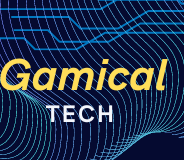
OpenAI introduced the o1 series of artificial intelligence (AI) models, showcasing enhanced reasoning capabilities. These models, which include the o1 and o1-mini, are believed to be the long-rumored ‘Strawberry’ models that OpenAI has been developing for several months. The company claims these large language models (LLMs) are capable of multi-step reasoning and can “think like a human.” Now, according to reports, these advanced models are being made available to enterprise and education users.
The o1 series is designed to tackle complex reasoning tasks, solve multi-step mathematical problems, and handle subjects requiring deep expertise. OpenAI emphasizes that these models simulate a human-like thinking process, taking a few minutes to consider a prompt before generating a response. This deliberate approach allows the AI to explore various possibilities and reduce errors.
Notably, Derya Unutmaz, a professor at The Jackson Laboratory, praised the o1 AI model in a post on X (formerly known as Twitter), stating that it helped him draft a complex cancer treatment project based on a specific immunological approach. He noted that the task would have taken him days or longer to complete without the AI’s assistance.
As per OpenAI, users on the free tier of ChatGPT will soon gain access to the o1-mini model in the coming weeks, albeit with lower rate limits compared to paid subscribers. VentureBeat also reports that OpenAI is expanding the o1 models to ChatGPT Enterprise and ChatGPT Edu subscribers, allowing them to switch to these models for enhanced performance in prompts requiring advanced reasoning.
While paid users of ChatGPT have already gained access to these models, OpenAI has stated that this is still an “in preview” launch, meaning rate limits are in place. The larger o1 model currently has a limit of 50 queries per week, while the o1-mini model was initially capped at the same rate. However, OpenAI later increased the o1-mini limit to 50 queries per day.
visit: gamicaltech.com
